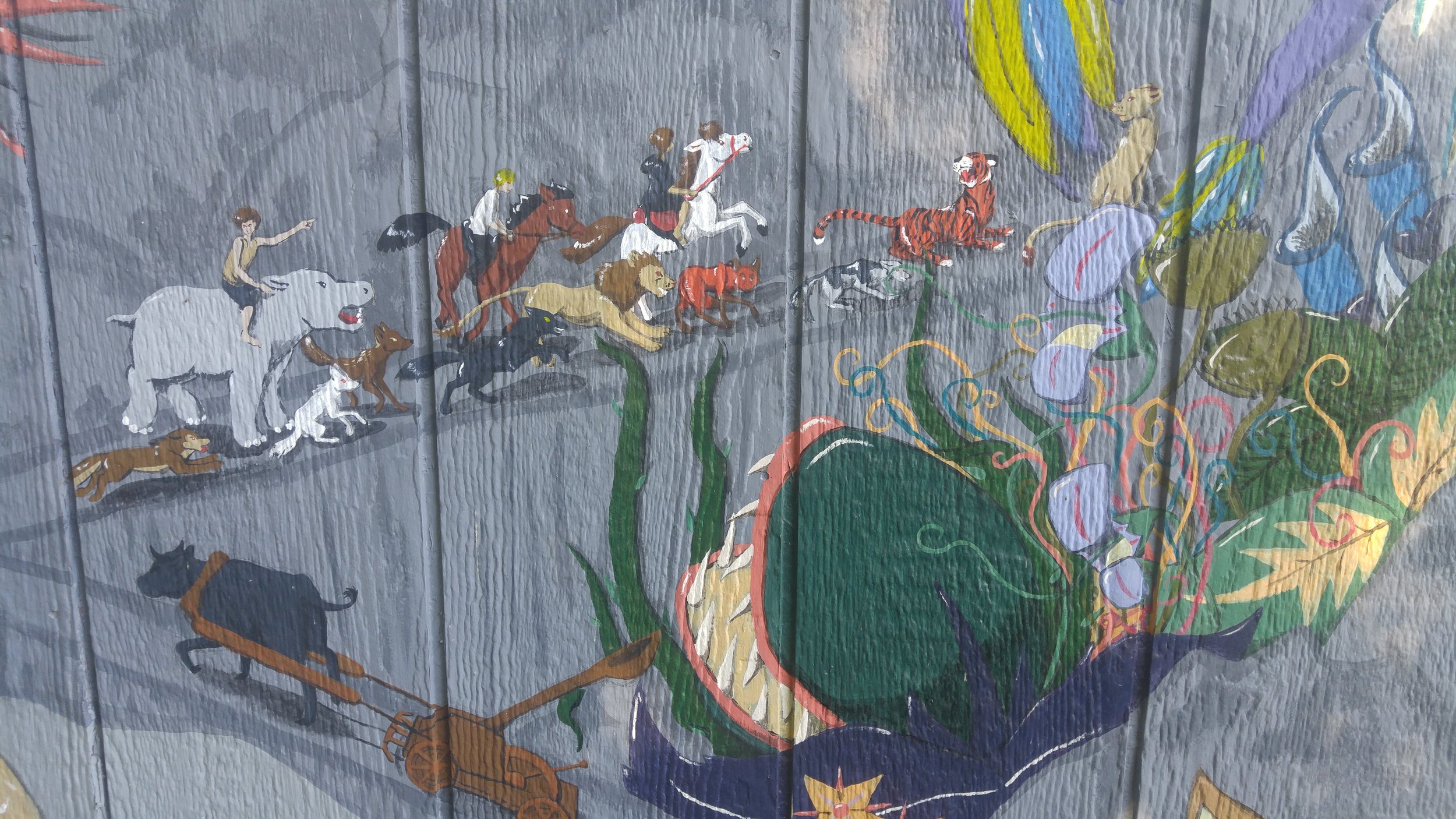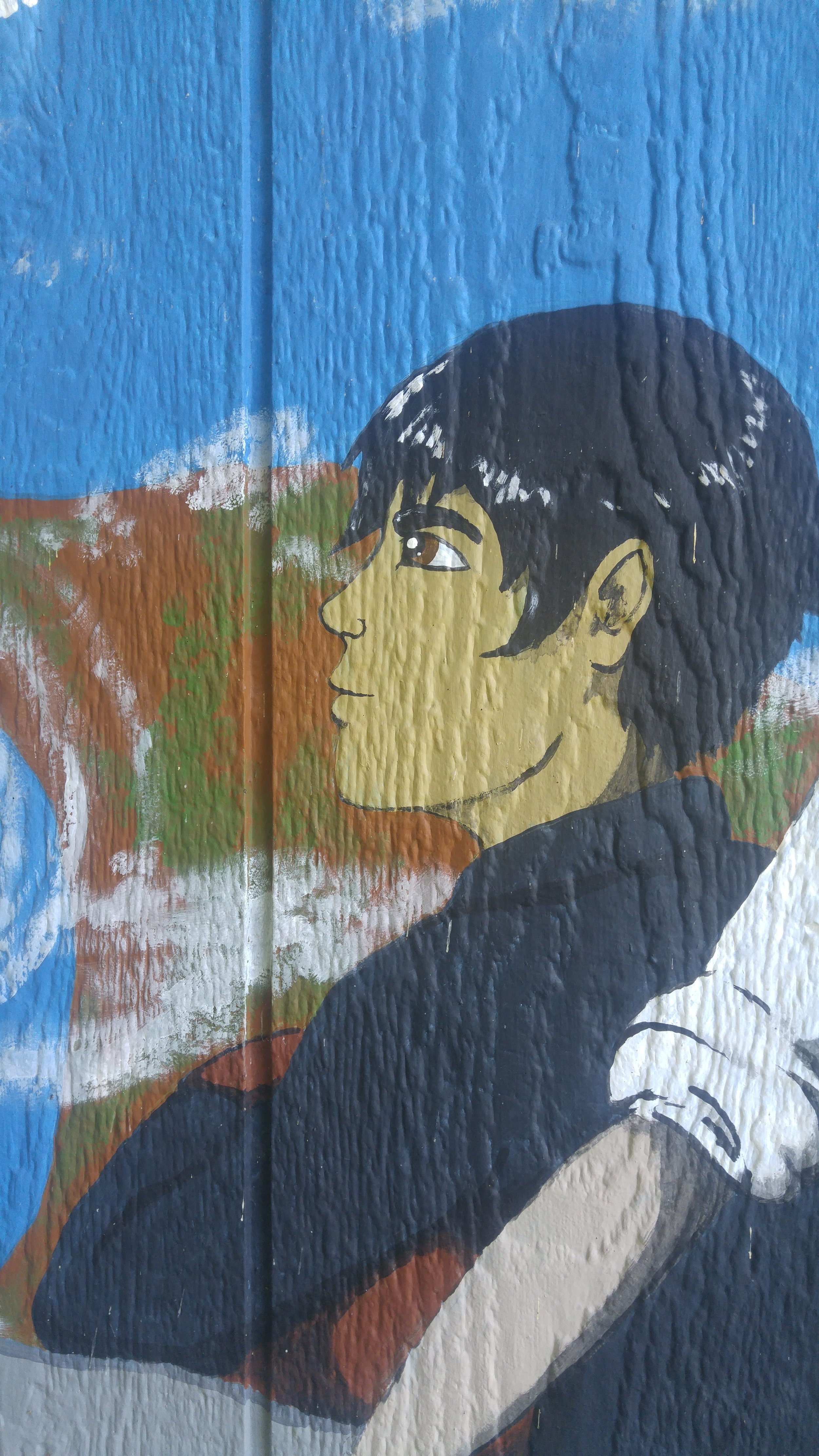As usual, November knocked me on my booty. But hey! I won NaNoWriMo and have a great starting point for a podcast experiment, so at least there’s that. I also regrouped with some neglected friends and have plans to get back to some D&D shenanigans, and am penning the last sentences of my wintry lesbian love story. 2019 will be a productive year, if I can stick to my intentions.
And gosh, do I have a lot of intentions.
I’ve been experiencing a bit of Baader-Meinhof (the phenomenon in which one encounters a word or phrase for the first time and then sees it everywhere) about the word “intention” recently, even though the concept isn’t new to me. Still, the term keeps turning up, and the little me in my head that believes in magic and meaning can’t help but sit up and listen.
Just the other day, a blog I follow (Karmen Fink’s “Spark & Celebrate”) posted about setting intentions for 2019 rather than resolutions. It comes down to a difference between setting goals and promoting a certain state of being.
Now, goals are great. Stars know I love a good list to check off. However, I’m increasingly attracted to the idea that personal change must come from the inside out rather than the outside in. I could set a goal of drinking so many glasses of water a day, and maybe that would work, but what if I set an intention to desire water instead?
Here’s where we start to get a little hippie-dippie (even for me), but let me unpack more of what I’m trying to say.
Unfortunately, I am my great grandmother’s great grandchild when it comes to drinking water. One of her oft-quoted lines within our family is: “Water? Never touch the stuff.” Great Grandmother preferred Manhattans, and I’ve inherited her taste for the cocktail, for better or for worse (but hey, she lived for over a century, so maybe she was on to something).
I don’t really get thirsty. I drink for energy (coffee, energy drinks, Diet Coke) or for relaxation (tea, alcohol), and… yeah, actually, those are pretty much my only reasons. Water neither energizes nor relaxes me (at least not to immediate or noticeable degrees), so I don’t often bother. If I’m caught drinking water, it’s for one of the following reasons:
I’m desperately trying to atone to my body for taking it out drinking with a bunch of college kids and mistakenly believing it and its 28 years of begrudging service could keep up with the younguns.
I’m about to start my period, which is an irregular event that catches my PCOS-suffering self off guard whenever it suddenly chooses to cycle, thus confusing my body into believing that it should start to do other normal human things too, like drinking water, eating vegetables, and sleeping more than five hours a night.
The primal part of me that still desires to live despite the current political climate, the rapid deterioration of the only life-sustaining planet humans have access to, and my own sense of worthlessness has seized the opportunity in the middle of the night to awaken me and pilot my unwilling body to the bathroom sink in order to lap water directly from the tap like a feral nocturnal beast.
Security footage of me captured in the wee hours of last Thursday morning. Source
Yes, things are so bad that my reptilian brain has to step in and force me to suckle water from the faucet at three in the morning. Something must be done.
I want to like water. There are so many well-researched health benefits that I’m a fool to continue mistreating my body like this just because I find water boring and don’t experience a strong sense of thirst. So, I’m setting this intention for 2019:
I intend to desire water and enjoy its benefits.
Whew, there it is. OK. But how does it work? Do I just magically start enjoying water?
Alas, like everything good, this will take conscious effort and positive thinking. As I’ve mentioned once or twice or a thousand times, I’m the Empress of Negative Self-Talk. Some little sprite in my consciousness is constantly out to drag me for every mistake, real or imagined. I know firsthand how negative thoughts can manifest a negative reality. I also know that positive thinking can manifest a positive reality by creating a mental environment that’s better at coping with stress, and thus better at keeping the rest of me healthy and happy.
In order to act on my intention, I must internalize it. The first few weeks or months, I know I’ll need to specifically “schedule” drinking a glass of water into my daily routine. When I drink that scheduled glass, I’ll need to be present in that moment, and grateful for my access to clean water. I’ll notice the taste and appreciate the coolness of it. I’ll also need to think about those health benefits I mentioned, and look with optimism toward a future with clearer skin, increased energy, and fewer headaches.
In short, I’ll practice mindfulness and optimism, things I should be working on anyway. With enough repetition (as you probably already know, it takes 21 days to make a habit), my mindset should improve, and I’ll desire water and the good feeling it gives me in the present and the future.
And that’s just one example! There are plenty of things I intend to do in 2019, and I want to train my brain to approach my tasks with enthusiasm and gratitude, whether I’m planning a D&D adventure or studying for a financial exam.
What about you? What intentions do you have for 2019? Whatever they are, I wish you the best with them.
Happy New Year, y’all!















